BMW X1 vs Peugeot 3008 - Differences and prices compared
Costs and Efficiency:
Looking at overall running costs, both models reveal some interesting differences in everyday economy.
Peugeot 3008 has a minimal advantage in terms of price – it starts at 35100 £, while the BMW X1 costs 38200 £. That’s a price difference of around 3086 £.
Fuel consumption also shows a difference: Peugeot 3008 manages with 2.40 L and is therefore minimal more efficient than the BMW X1 with 2.50 L. The difference is about 0.10 L per 100 km.
As for range, the Peugeot 3008 performs significantly better – achieving up to 698 km, about 617 km more than the BMW X1.
Engine and Performance:
Power, torque and acceleration are the classic benchmarks for car enthusiasts – and here, some clear differences start to show.
When it comes to engine power, the BMW X1 has a slight edge – offering 326 HP compared to 325 HP. That’s roughly 1 HP more horsepower.
In acceleration from 0 to 100 km/h, the BMW X1 is somewhat quicker – completing the sprint in 5.40 s, while the Peugeot 3008 takes 6 s. That’s about 0.60 s faster.
In terms of top speed, the BMW X1 performs slightly better – reaching 250 km/h, while the Peugeot 3008 tops out at 220 km/h. The difference is around 30 km/h.
There’s also a difference in torque: Peugeot 3008 pulls minimal stronger with 511 Nm compared to 477 Nm. That’s about 34 Nm difference.
Space and Everyday Use:
Whether family car or daily driver – which one offers more room, flexibility and comfort?
Seats: offers more seating capacity – vs .
In curb weight, BMW X1 is hardly perceptible lighter – 1575 kg compared to 1648 kg. The difference is around 73 kg.
In terms of boot space, the BMW X1 offers minimal more room – 540 L compared to 520 L. That’s a difference of about 20 L.
In maximum load capacity, the BMW X1 performs barely noticeable better – up to 1600 L, which is about 120 L more than the Peugeot 3008.
When it comes to payload, BMW X1 slight takes the win – 500 kg compared to 467 kg. That’s a difference of about 33 kg.
Who wins the race?
The Peugeot 3008 proves to be outperforms in nearly all aspects and therefore becomes our DriveDuel Champion!
Peugeot 3008 is the better all-rounder in this comparison.
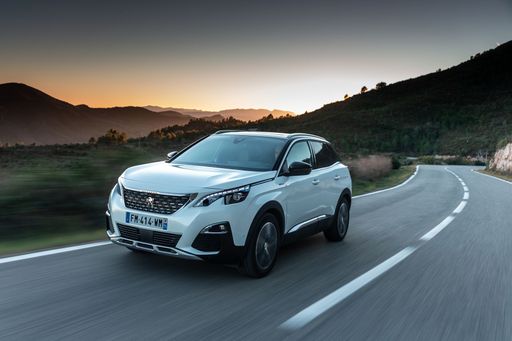 @ Peugeot / Stellantis Media
@ Peugeot / Stellantis Media
Peugeot 3008
Costs and Consumption
View detailed analysis
Engine and Performance
View detailed analysis
Dimensions and Body
View detailed analysis
BMW X1
The BMW X1 brings a premium feel to compact crossover life, wrapping practical space and agile handling into a tidy, upscale package. It’s ideal for buyers who want BMW driving dynamics without the bulk, offering everyday comfort and a few clever tricks to keep the commute interesting.
details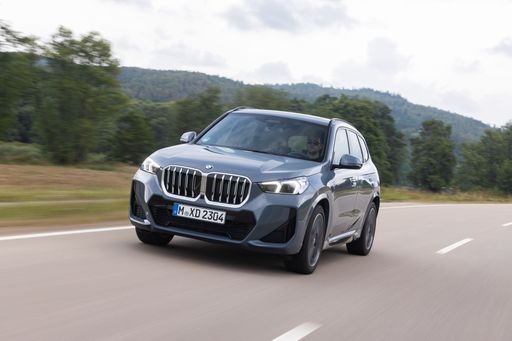 @ BMW Group Press
@ BMW Group Press
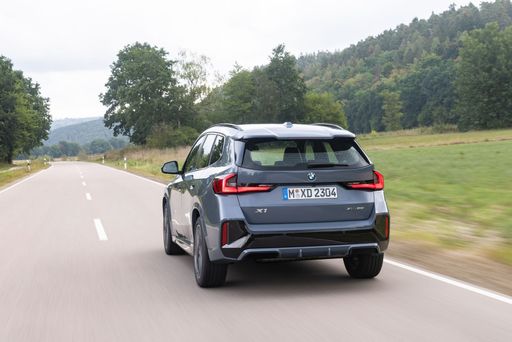 @ BMW Group Press
@ BMW Group Press
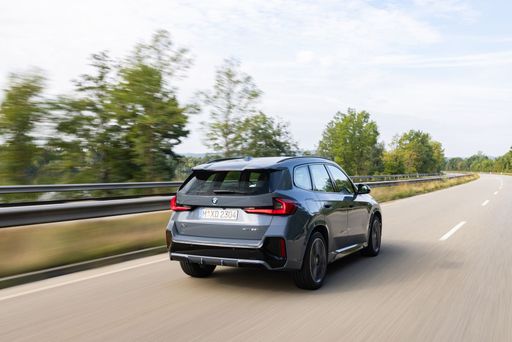 @ BMW Group Press
@ BMW Group Press
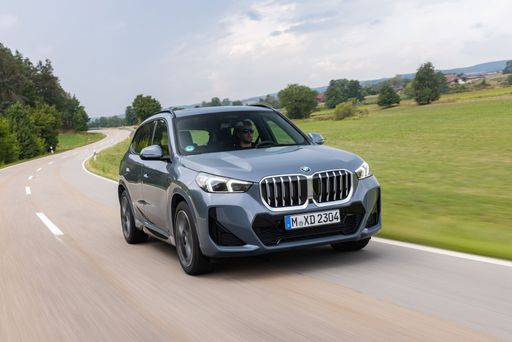 @ BMW Group Press
@ BMW Group Press
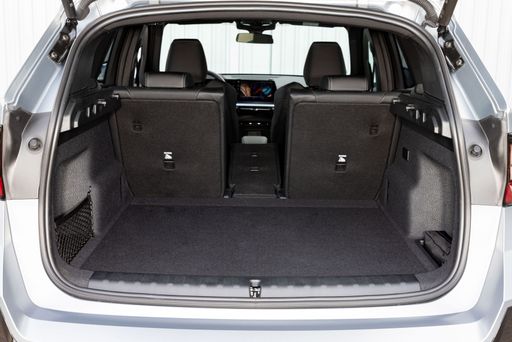 @ BMW Group Press
@ BMW Group Press
Peugeot 3008
The Peugeot 3008 blends bold French styling with a surprisingly grown-up interior that makes even dull commutes feel a little bit special. Practical enough for family life yet lively to drive, it’s a clever all‑rounder that stands out from the crossover crowd without shouting for attention.
details @ Peugeot / Stellantis Media
@ Peugeot / Stellantis Media
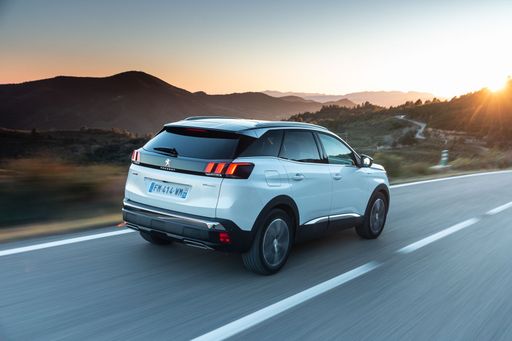 @ Peugeot / Stellantis Media
@ Peugeot / Stellantis Media
 @ Peugeot / Stellantis Media
@ Peugeot / Stellantis Media
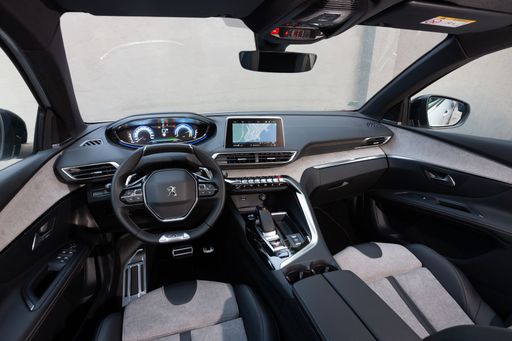 @ Peugeot / Stellantis Media
@ Peugeot / Stellantis Media
 @ BMW Group Press
@ BMW Group Press
|
 @ Peugeot / Stellantis Media
@ Peugeot / Stellantis Media
|
|
|
|
Costs and Consumption |
|
|---|---|
|
Price
38200 - 55500 £
|
Price
35100 - 52000 £
|
|
Consumption L/100km
2.5 - 7.7 L
|
Consumption L/100km
2.4 - 5.4 L
|
|
Consumption kWh/100km
-
|
Consumption kWh/100km
16.9 - 17.6 kWh
|
|
Electric Range
81 km
|
Electric Range
81 - 698 km
|
|
Battery Capacity
14.20 kWh
|
Battery Capacity
0.4 - 96.9 kWh
|
|
co2
57 - 175 g/km
|
co2
0 - 121 g/km
|
|
Fuel tank capacity
47 - 54 L
|
Fuel tank capacity
55 L
|
Dimensions and Body |
|
|---|---|
|
Body Type
SUV
|
Body Type
SUV
|
|
Seats
5
|
Seats
5
|
|
Doors
5
|
Doors
5
|
|
Curb weight
1575 - 1935 kg
|
Curb weight
1648 - 2266 kg
|
|
Trunk capacity
490 - 540 L
|
Trunk capacity
470 - 520 L
|
|
Length
4500 - 4505 mm
|
Length
4542 mm
|
|
Width
1845 mm
|
Width
1895 mm
|
|
Height
1622 - 1642 mm
|
Height
1641 mm
|
|
Max trunk capacity
1495 - 1600 L
|
Max trunk capacity
1430 - 1480 L
|
|
Payload
490 - 500 kg
|
Payload
432 - 467 kg
|
Engine and Performance |
|
|---|---|
|
Engine Type
Diesel MHEV, Petrol MHEV, Petrol, Diesel, Plugin Hybrid
|
Engine Type
Electric, Petrol MHEV, Plugin Hybrid
|
|
Transmission
Automatic
|
Transmission
Automatic
|
|
Transmission Detail
Dual-Clutch Automatic
|
Transmission Detail
Reduction Gearbox, Dual-Clutch Automatic
|
|
Drive Type
Front-Wheel Drive, All-Wheel Drive
|
Drive Type
Front-Wheel Drive, All-Wheel Drive
|
|
Power HP
136 - 326 HP
|
Power HP
145 - 325 HP
|
|
Acceleration 0-100km/h
5.4 - 9.2 s
|
Acceleration 0-100km/h
6 - 10.2 s
|
|
Max Speed
190 - 250 km/h
|
Max Speed
170 - 220 km/h
|
|
Torque
230 - 477 Nm
|
Torque
230 - 511 Nm
|
|
Number of Cylinders
3 - 4
|
Number of Cylinders
3 - 4
|
|
Power kW
100 - 240 kW
|
Power kW
107 - 239 kW
|
|
Engine capacity
1499 - 1998 cm3
|
Engine capacity
1199 - 1598 cm3
|
General |
|
|---|---|
|
Model Year
2024 - 2025
|
Model Year
2024 - 2025
|
|
CO2 Efficiency Class
D, E, F, B
|
CO2 Efficiency Class
A, D, B
|
|
Brand
BMW
|
Brand
Peugeot
|
Is the BMW X1 offered with different drivetrains?
The BMW X1 is offered with Front-Wheel Drive or All-Wheel Drive.
The prices and data displayed are estimates based on German list prices and may vary by country. This information is not legally binding.
